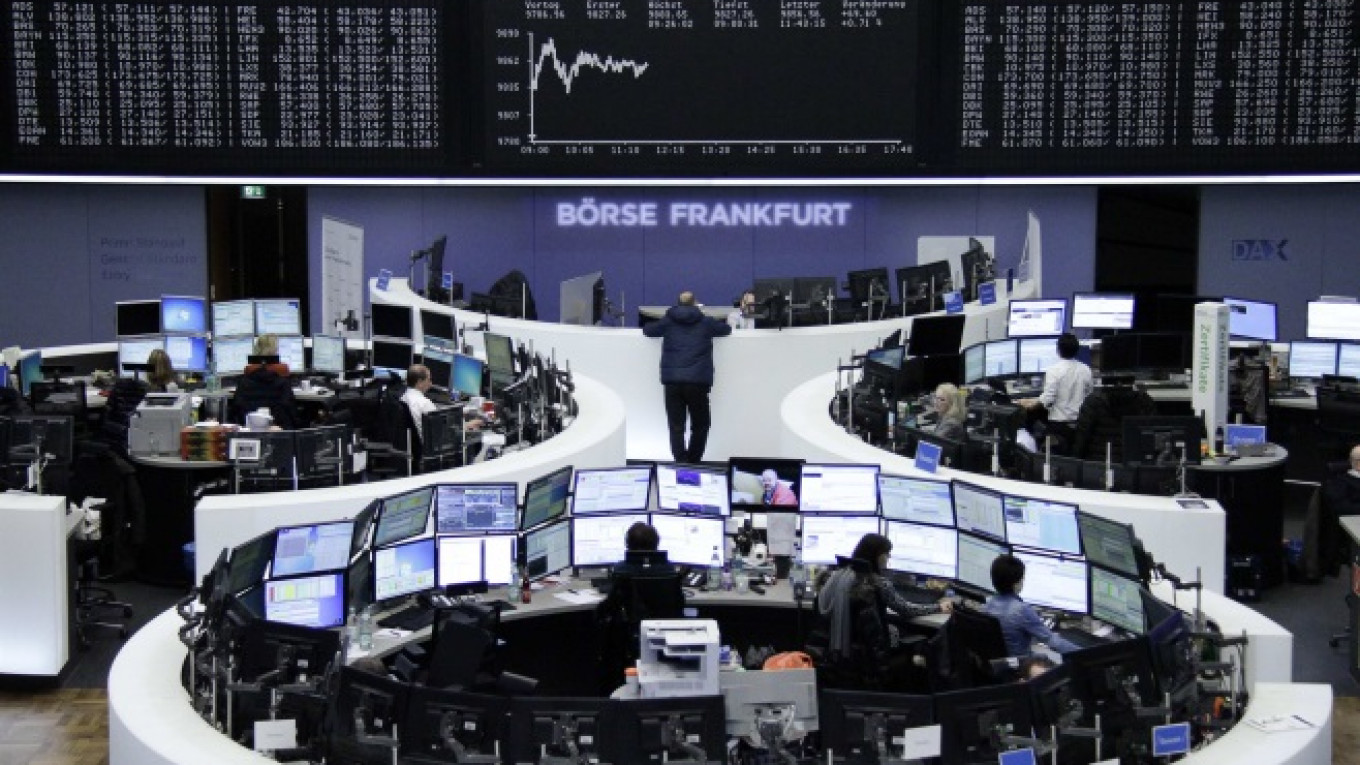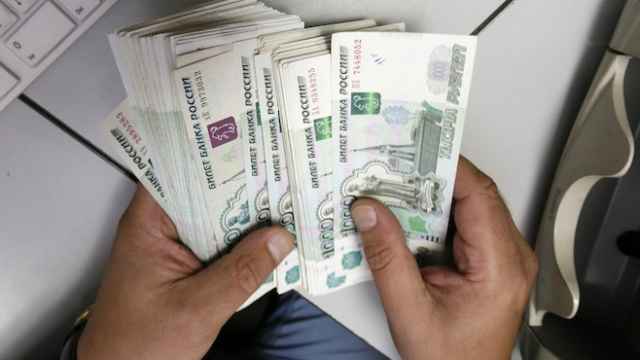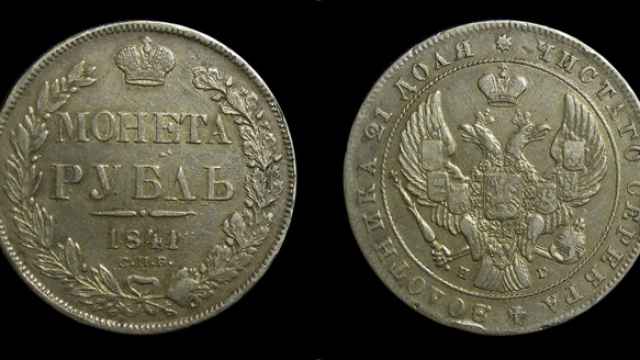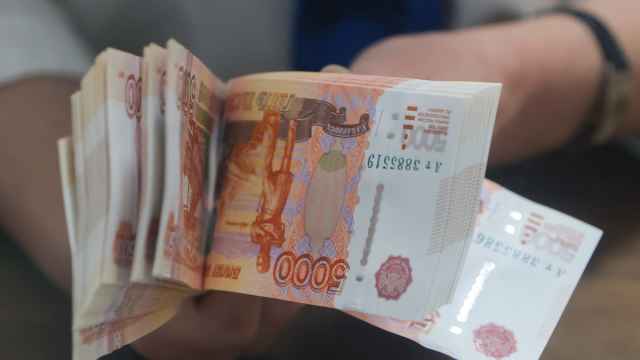Russia's ruble stabilized on Wednesday, as exporters selling foreign currency countered the effect of a ratings agency saying it could downgrade Russia's sovereign debt to 'junk' status as soon as next month.
At 4:10 p.m., the ruble was around 0.3 percent weaker against the dollar at 54.65.
It lost 0.6 percent versus the euro to 66.85 but traded in narrow ranges against both currencies in thin afternoon trading. The ruble has swung back and forth wildly in recent weeks, with intraday moves of more than 10 percent at times, the widest fluctuations since the 1998 financial crisis.
Late on Tuesday, Standard and Poor's revised Russia's credit ratings to creditwatch negative from negative, warning a deterioration in the country's monetary flexibility could lead the agency to put its sovereign rating in 'speculative' territory as soon as mid-January.
"A review of the ratings in foreign and local currency to 'junk' level threatens to strengthen outflows from portfolio investments and to pressure the ruble," Dmitry Polevoy, chief economist for Russia and CIS at ING Bank, said in a note.
"Therefore, the near-term prospects for the ruble remain highly uncertain,” Polevoy said.
Central Bank plans announced on Wednesday to start lending money in foreign currencies to companies and banks willing to use their foreign loans as collateral did little to help the currency.
The ruble's decline was checked by exporters selling part of their foreign-currency earnings, both to meet tax payments due before the end of the month and in response to a government order from Tuesday forcing certain state exporters to start selling hard currency.
"It's more or less calm at the moment … exporters are selling foreign currency, perhaps not entirely of their own free will," said Pyotr Neimyshev, a forex trader at Okritie bank.
"We could end the year at around 52-53 rubles per dollar, but after the holidays [Jan. 1-11], I don't rule out that foreign currency will strengthen. I wouldn't leave long positions in the ruble over the holidays,” he said.
A Message from The Moscow Times:
Dear readers,
We are facing unprecedented challenges. Russia's Prosecutor General's Office has designated The Moscow Times as an "undesirable" organization, criminalizing our work and putting our staff at risk of prosecution. This follows our earlier unjust labeling as a "foreign agent."
These actions are direct attempts to silence independent journalism in Russia. The authorities claim our work "discredits the decisions of the Russian leadership." We see things differently: we strive to provide accurate, unbiased reporting on Russia.
We, the journalists of The Moscow Times, refuse to be silenced. But to continue our work, we need your help.
Your support, no matter how small, makes a world of difference. If you can, please support us monthly starting from just $2. It's quick to set up, and every contribution makes a significant impact.
By supporting The Moscow Times, you're defending open, independent journalism in the face of repression. Thank you for standing with us.
Remind me later.






